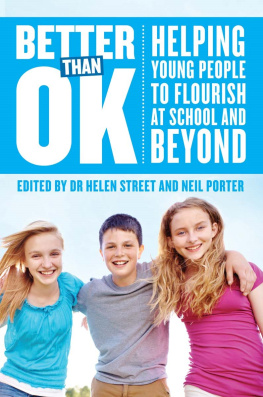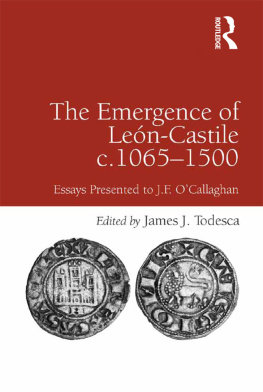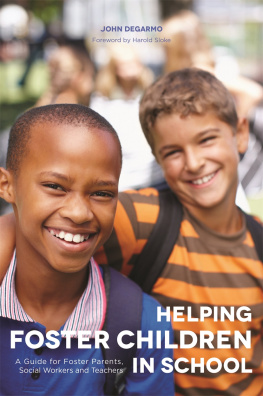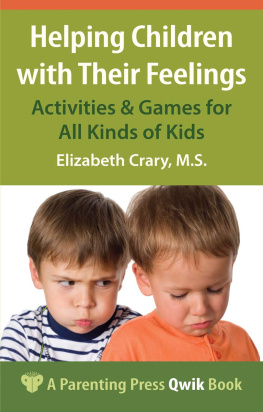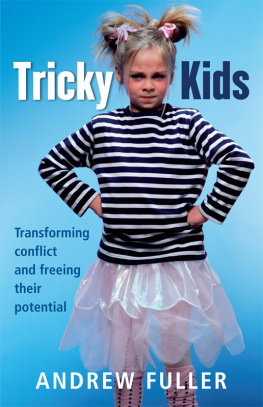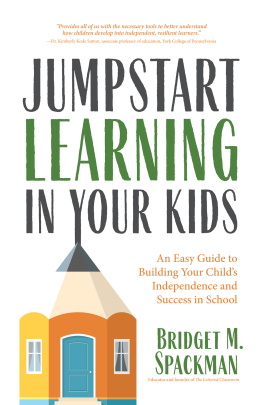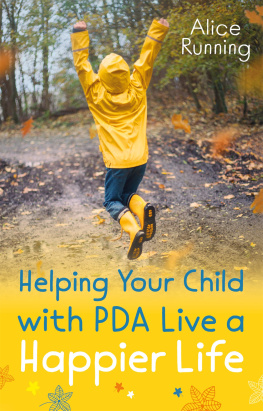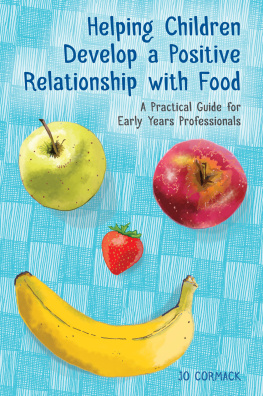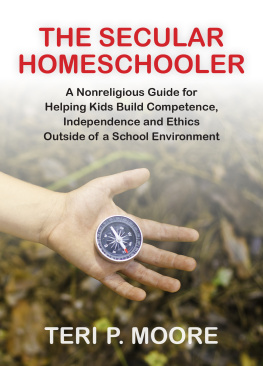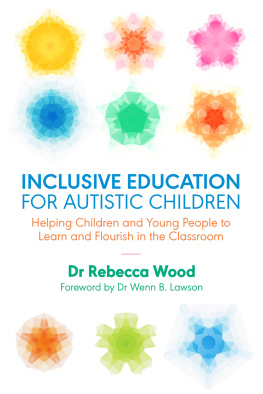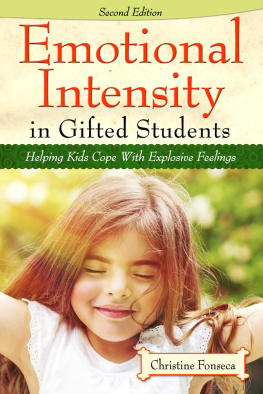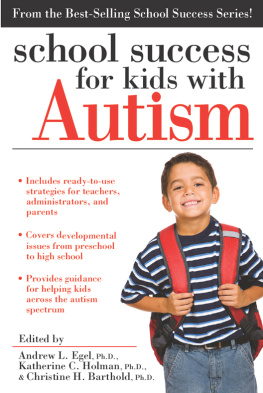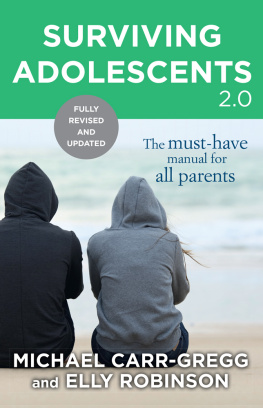ACKNOWLEDGEMENTS
Neil and I have felt part of a truly inspirational team during the creation of this very precious book. Our heartfelt thanks go to all of the authors who have so wisely and generously contributed to the chapters presented here. Each of you continues to make an incredibly valuable contribution to youth mental health and wellbeing in Australia and internationally. Thank you for sharing your thoughts and ideas here, for joining us in the ongoing creation of Positive Schools, and for your continued work in this area. We have learnt so much professionally from each of you, and delighted in the added bonus of making some very dear friends in the process.
Second, an enormous thank you to the wonderful and wise Jane Fraser at Fremantle Press. Jane, you not only embraced this project wholeheartedly, you did so knowing we were aiming to meet the craziest of crazy deadlines. Your faith in us ensured we produced not only a great book, but a great book on time. Thank you also to others at Fremantle Press who supported our journey with such enthusiasm and expertise. In particular, we would like to thank Claire Miller for bringing her business skills to the fore.
Next, a very special thank you to Janet Blagg for editing so many diverse and varied chapters with such mindfulness, skill and sensitivity. Janet, you have managed to support each author with their own distinct voice while always ensuring the chapters flow together towards the same aims and ideals. You have been a pleasure to work with.
Neil and I would also like to take this opportunity to express our ongoing and immense gratitude to all of the people who have made and continue to make the Positive Schools conferences such a success. Those behind the scenes, on the stage and in the audience. The Positive Schools conferences have not only been the main inspiration for this book, they have provided a firm foundation for its conception and delivery.
Finally, a very loving thank you to Lucia, Molly and Tess for providing a very personal reason for Neil and me to be advocates of youth wellbeing, for lighting up our lives every day and for ensuring that we too strive to be better than OK.
Helen Street
CONTENTS
INTRODUCTION
POSITIVE SCHOOLS, POSITIVE TALK
DR HELEN STREET
Wellbeing is the basis of flourishing, which is the ultimate expression of being well. This is a book about helping young people to flourish at home, at school and in life.
Flourishing is a term that describes someone who is confident in their identity, assertive in their social interactions, loving towards themselves and others, resilient to lifes inevitable setbacks and engaged in activities that embrace their strengths and passions. Kids who flourish have the greatest potential of all because they have the potential to be happy. Kids who flourish are kids who experience wellbeing and apply that wellbeing to living their lives in a positive and healthy way.
Nearly all parents want, above all else, for their children to flourish in life, to be happy and live their lives accordingly. Still, there remains a wide difference of opinion about the role of the education system in supporting flourishing as a primary aim. Some educators embrace social and emotional learning; others suggest that while social and emotional competency may be important, education is primarily an academic pursuit. It seems to me that this debate is redundant in the light of a growing body of research telling us that academic potential is most successfully fulfilled in the presence of wellbeing. In fact, just about anything we do in life is done more successfully, more passionately and with greater love and commitment, when done in the presence of wellbeing.
Young people make healthier and more positive choices about their current and future learning when they are happy and well. And they are more likely to develop social competency when they have a firm foundation of wellbeing from which to launch themselves into a social world. As such, wellbeing is a vital beginning as much as it is an ultimate desire. Wellbeing is the basis of flourishing. Flourishing is the ultimate expression of being well.
The really good news about all this lies in the knowledge that every child and teen has the potential to flourish in life. No matter where an individuals strengths lie or where they are placed among the social and academic milieu, they can flourish as people. Although it is indeed true that some of us are born with greater vulnerability or sensitivity than others, none of us is born anxious or depressed. None of us is born without hope or a desire to embrace life.
Not everyone will be deemed good at what they do, or be made rich in consequence. Some of us are born into undeniable hardship, conflict and poverty. However, it is our connection with living that measures life success, not some absolute level of achievement. Some kids are born with a natural leaning towards academic pursuits, others with a passion for the arts or a love of sport or creative thinking. No-one is born without the potential to find passion and engagement in some aspect of life. In short, everyone is born with the potential to flourish, to be happy and live well, if only they are given the opportunity to do so.
It is time we stopped measuring the success of our children based upon their comparative performance against their peers or some arbitrary outcome. While only a few may excel in our material world, we all have the opportunity to engage in life.
Twenty-seven authors have contributed to the thirty-two chapters presented here, each exceptional in their own right as advocates for youth mental health and wellbeing. Each has also contributed in the Australian Positive Schools conferences, the source of inspiration for this book.
The Positive Schools conferences started in Western Australia (WA) in 2009. They came about after Neil Porter and I decided there was a real need to help teachers embrace well-researched concrete strategies to support wellbeing in their schools and colleges. We wanted a conference that eschewed graphs, psychobabble and statistics and focused instead on grounded, practical and sustainable solutions. Positive Schools was launched as a one-day event with the support of the Graduate School of Education at the University of Western Australia (UWA). This first conference featured an inspirational keynote address by burns specialist Professor Fiona Wood and contributions from inspirational speakers like George W. Burns. When all 250 places were taken up two months beforehand, we knew we were engaging in something important.
The following year, iconic leader in anti-racism Jane Elliott flew in from the US for our two-day event. The day she arrived, Neil and I met her for coffee. We brought cookies, our third child, still a baby, and our barely restrained excitement. Janes warmth, wit and intelligence made our conversation a joy. After two hours she asked about the purpose of our discussion, presuming we needed to talk about the practicalities of the next few days. Oh, no, we exclaimed, we simply wanted to meet you. Since that first coffee, Jane has been an ongoing advocate of Positive Schools. Her chapter On Education describes the personal lesson she learnt from her historic Blue Eyes/Brown Eyes exercise.
By 2011 our confidence had grown along with our reputation, and we welcomed a new member of the team, Richard Pengelley. We decided to present a conference in Brisbane, along with a three-day event in WA. The WA conference featured a day for parents in recognition of their investment in their childrens futures. Five presenters, including myself, gave talks to over 300 dedicated mums and dads.
We established ourselves at the Esplanade Hotel in Fremantle where we could accommodate our growing numbers. Our event featured the lovable Steve Biddulph along with the most passionate advocate for youth wellbeing I have met, Dr Michael Carr-Gregg. Michael also spoke in Queensland at our special bullying themed Positive Schools, hosted by the ABCs Tony Jones. Michael has since become a Positive Schools ambassador and a regular and highly valued member of the team. We were also graced by the wise words of Donna Cross and Toni Noble in 2011, and I am proud to say that both these highly respected women have become Positive Schools ambassadors since that time.

